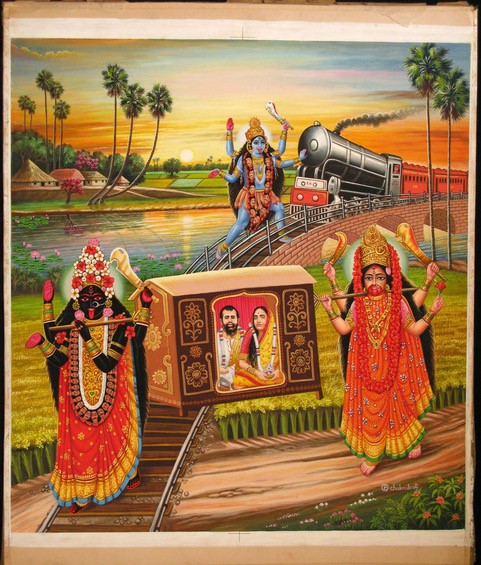
Timely Histories: A Social History of Time in South Asia is a five-year project that started in January 2021. The project has received funding from the European Union’s Horizon 2020 research and innovation programme (ERC Consolidator Grant) under grant agreement No 866421.
The project aims to write the history of time and temporal cultures in South Asia between the 1500s and the 1950s on a practice- and process-based approach to historical pasts. Covering this broad timespan under five modular units, the objective is to investigate and write the graded pasts of shifts and transformations that occurred within the temporal cultures of South Asia. In doing so, it departs from the usual approaches that focus either on the device (clock) or modern nation-state institutions such as army, school, factory, and office. Instead, while going beyond device-centrism, it puts ‘othered’ spaces of temporal practices such as field, farm, jungle, and river in the centre of the time’s history.
Time and temporal cultures in South Asia have been studied either as an aspect of historicism for ancient and medieval periods or narrowly as a feature of colonialism in the late 19th century. Arguably, the nexus of western colonialism, mutated industrial capitalism, and slow-paced technological changes created a new temporal regime in which clocks, capital, and railways became the agents of change. While engaging with these changes and forces of change, the project’s central hypothesis is that the modern temporal culture cannot be studied in isolation by only looking at a period historically defined as modern, with a defining characteristic of an empty and abstract notion of time.
The project’s novelty is in the combined strength of transcending widely applied frameworks across regions as well as in opening new fields of inquiry for South Asia. By generating rich empirical works, guided by interdisciplinary theoretical approaches, five clearly laid-out units will achieve this.
One, the history of work and time in which instead of factory and clock the focus is on ecology and legality across agrarian, informal, and industrial sites; two, the role of nocturnal time in shaping the practices of social transgressions but crucially in constituting the ‘rule of law’; three, the history of ‘hidden scripts’ of waiting and delay that have been neglected under the weight of new technologies that introduced the new sensibility and experience of speed; four, the history of the future as imagined and shaped by people using diverse resources ranging from life insurance to visiting religious time-tellers; and five, an independent unit on the early modern period that would break the rigid periodisation in history writing by exploring continuous and changing time-practices.
Temporal modernity, the project argues, emerged from the existing temporal cultures rather than supplanted them. Through its bold yet feasible scope, Timely Histories proposes to establish temporality as an independent analytical category in studies on spatiality, colonialism, and social history.
